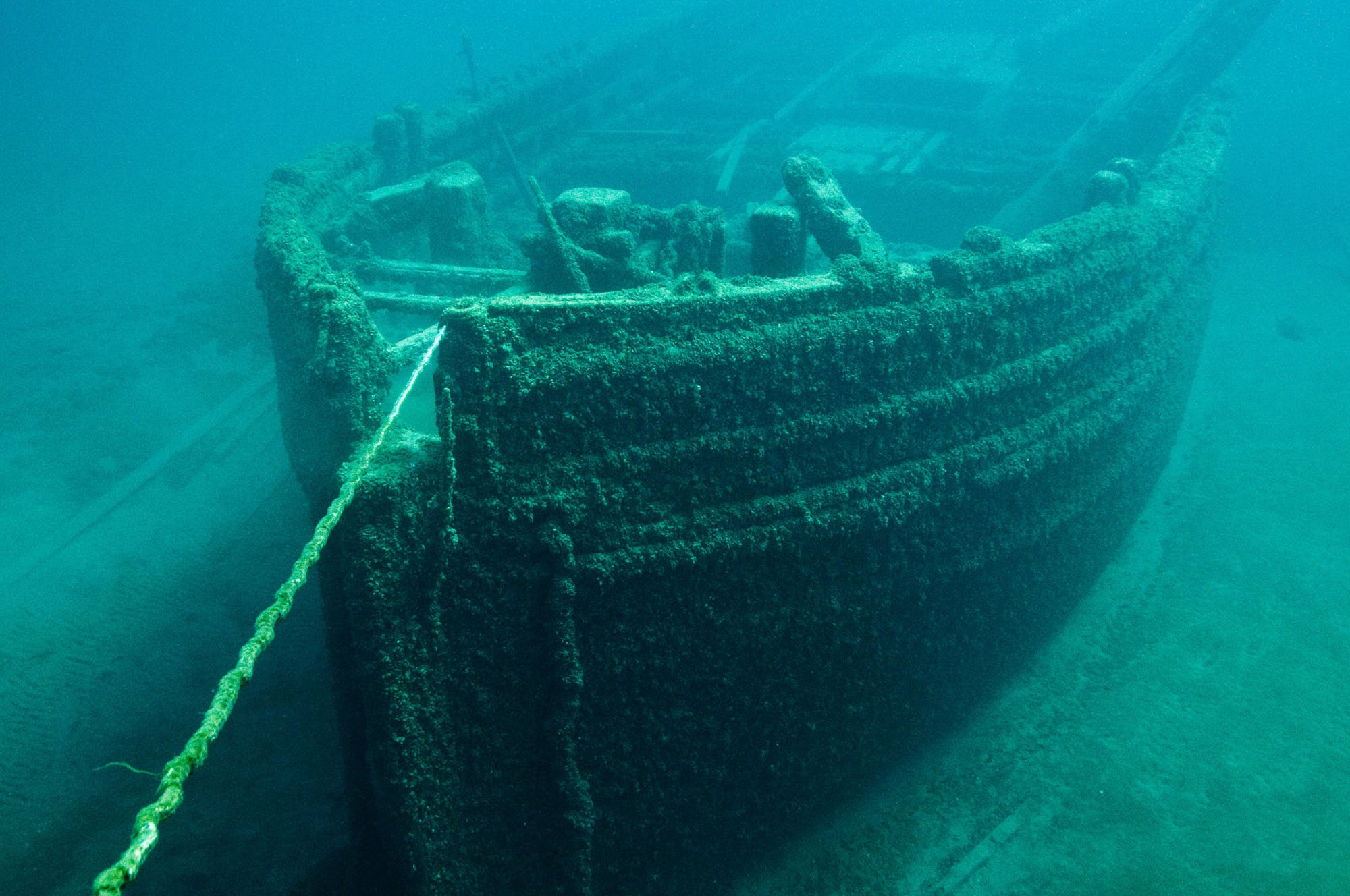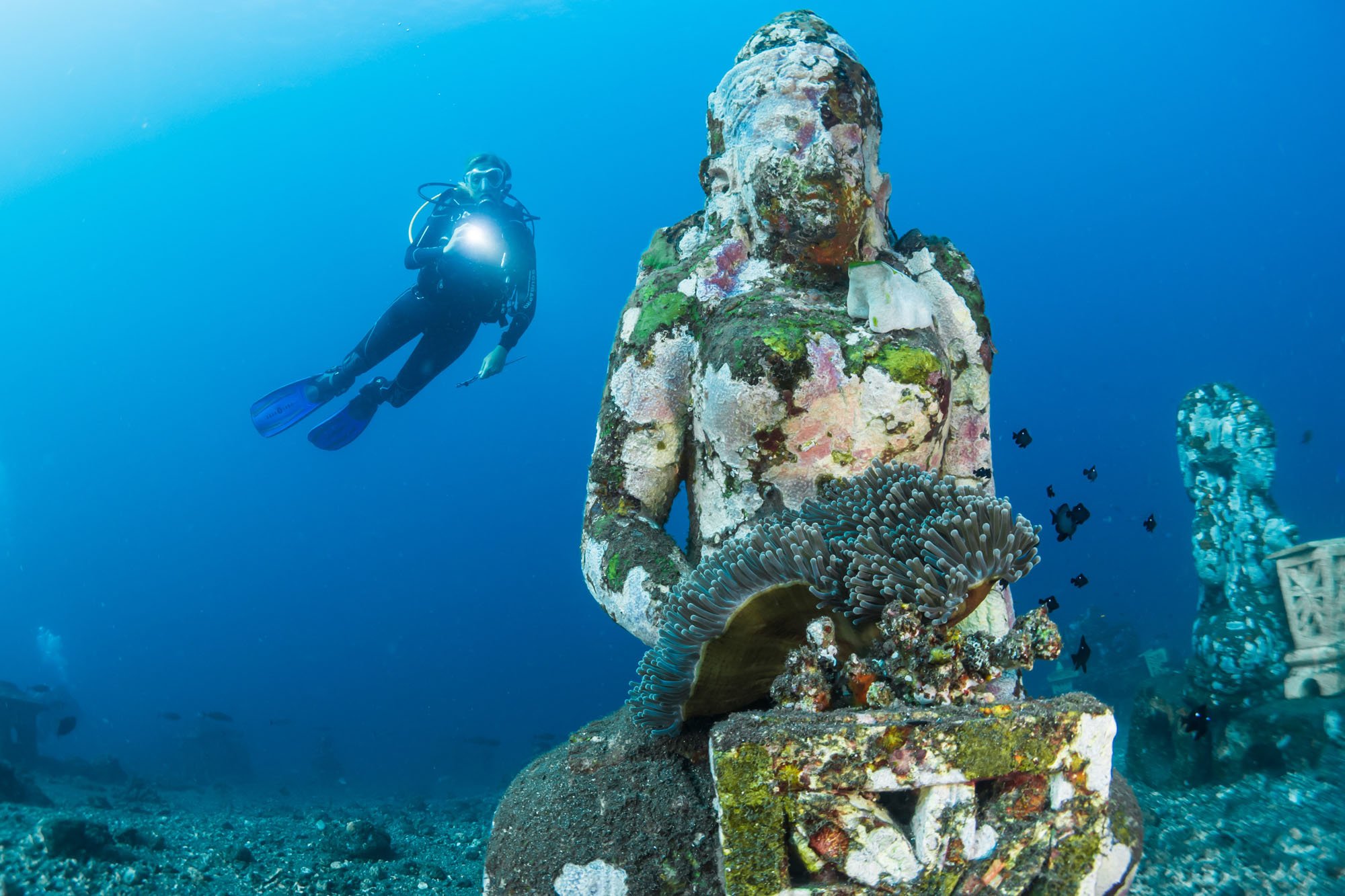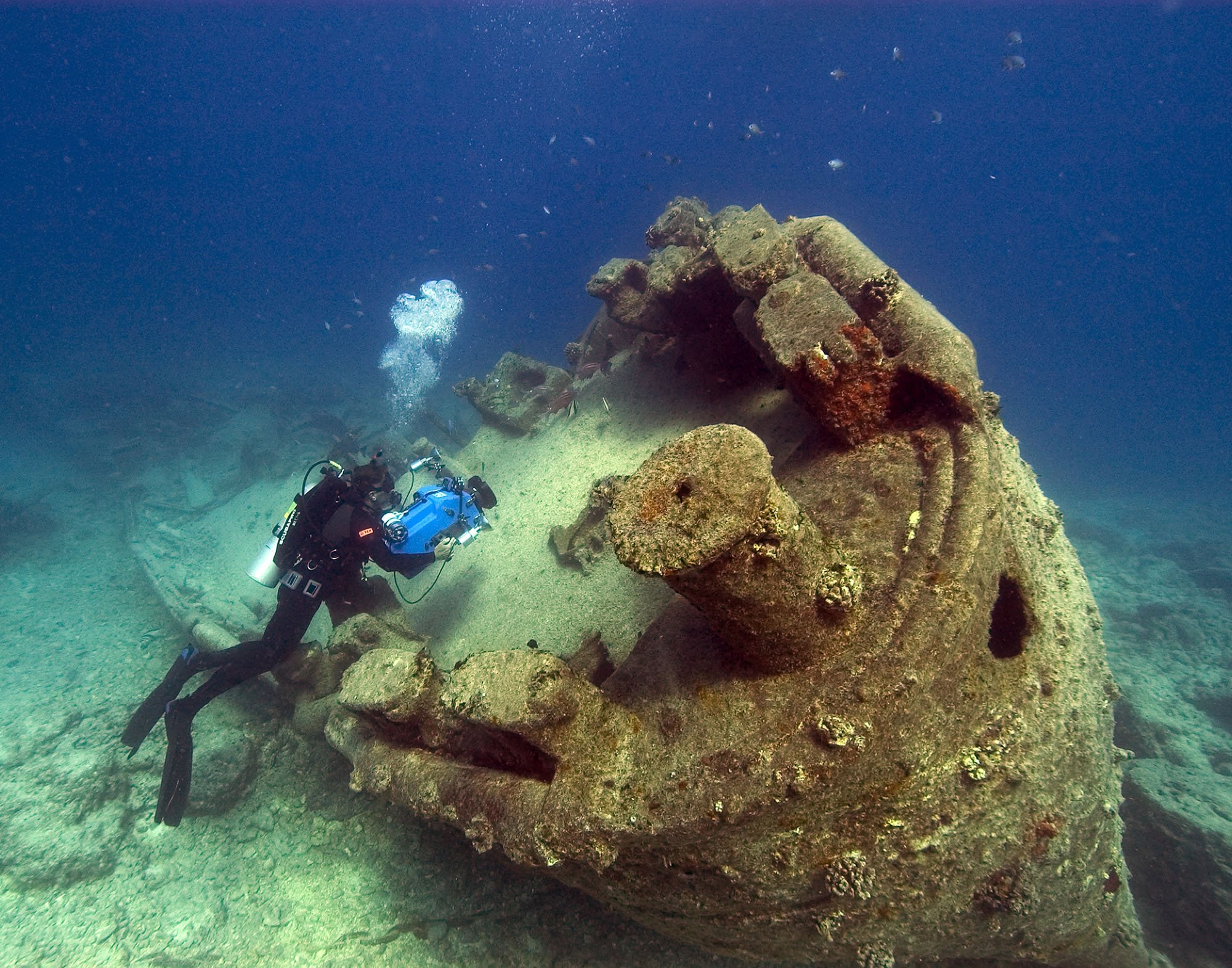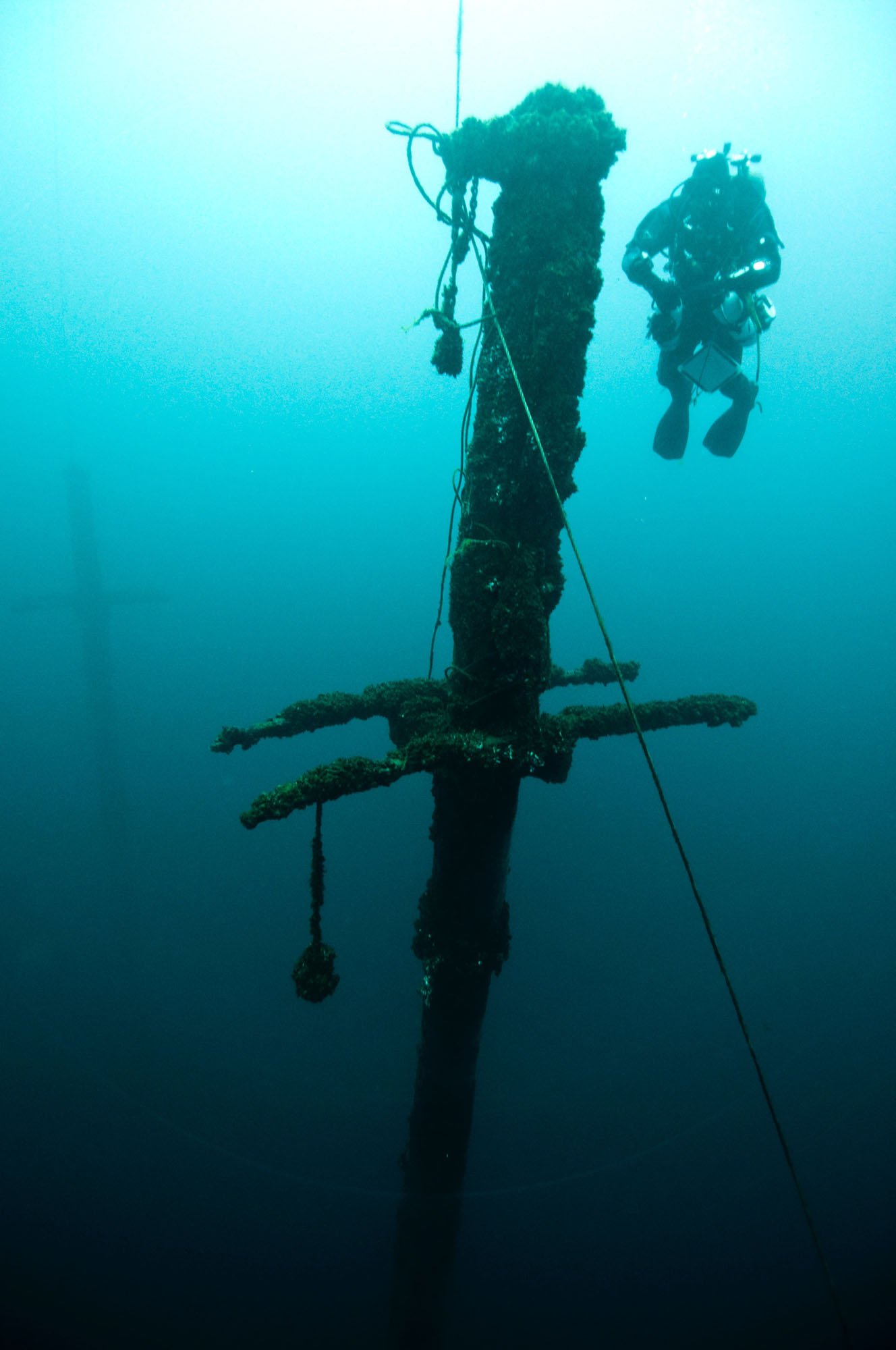Home → What’s On → Policy Advice → Underwater Cultural Heritage: Next Steps for the UK Government
Underwater Cultural Heritage is a live issue and there is growing pressure on the UK government to act. In light of the conclusion of the recent Impact Review and the growing number of States who have ratified the UNESCO Convention, it is timely for the UK government to revisit its position.
Underwater Cultural Heritage (UCH) refers to traces of human existence which have been partially or totally underwater, periodically or continuously for at least 100 years. It forms an integral part of a common global archaeological and historical heritage and can provide invaluable information about culture, economies, migration, and societal interrelationships.
A Briefing Note by the British Academy and Honor Frost Foundation published in 2014 explicitly makes the case for UK ratification, noting that the Impact Review has demonstrated that the UK’s 2001 reservations need no longer be such a concern.


There are a number of broader developments and factors in relation to the Convention and the international and domestic management of underwater archaeology which are important to take into account.
• The UK has adopted ‘The Rules’, an Annex to the Convention, which includes the principle that UCH should not be commercially exploited.
• It is already government policy that marine licences must comply with ‘The Rules’.
• A number of other major maritime States who originally had concerns about the Convention have now ratified including Spain, France, and Portugal. The Republic of Ireland, Germany and the Netherlands are all considering ratifying.
• The Convention distinguishes between activities directed at UCH, and those which incidentally affect UCH. The scope is therefore narrower than might be presumed.
• The UK will not automatically be required to protect all wrecks in its territorial seas.
• There are several business sectors in the UK which could gain internationally from full UK participation.
• The 2001 Convention is increasingly becoming established as the principal framework for international law for underwater archaeology.
Should the government choose to move towards ratification, consultation with those members of the maritime community who are concerned about its potential impact on their activities could usefully seek to identify and address any remaining substantiated concerns.
The Review found that the majority of the substantive clauses of the 2001 Convention appear to present no difficulty to the UK, and that the UK has world-leading experience in some particular areas. However, there are some clauses which would require the UK to introduce new measures in policy and administration, and potentially in law, and to reallocate resources:
• Regulation or removal of UCH from salvage law
• Development of reporting/notification mechanisms
• Provision for seized UCH
• Human Remains
• Archaeological Archives

Building the case for ratification
The Review:
• revisited the UK government’s concerns of 2001 in the light of present circumstances;
• considered the legal, policy and administrative implications, were the UK to ratify the Convention;
• provided a clause-by-clause examination of the Convention, identifying any which could cause a difficulty for the UK.
The table below sets out the four issues cited by the Government in 2001 and the corresponding findings of the Impact Review.
Concern Raised by the UK Government in 2001
Unresolved concerns about the compatibility of the 2001 Convention with the 1982 United Nations Convention on the Law of the Sea (UNCLOS) and the possibility of ‘creeping jurisdiction’.
Finding of impact review 2014
The 2001 UNESCO Convention is compatible with UNCLOS and the ability of the UK to protect and preserve its UCH would be strengthened by ratifying the Convention
Concern Raised by the UK Government in 2001
A perceived requirement to protect all wreck sites over 100 years old in waters adjacent to the UK.
Finding of impact review 2014
The Convention’s approach, based on activities rather than designation, does not impede the management of sites based on their significance (the practice in the UK). The scope of activities affected is quite limited and the likely numbers of activities are small. The number of known wrecks in the UK’s Territorial Sea is much lower than was estimated in 2001.
Concern Raised by the UK Government in 2001
A perceived requirement to protect all wreck sites over 100 years old in waters adjacent to the UK.
Finding of impact review 2014
The Convention’s approach, based on activities rather than designation, does not impede the management of sites based on their significance (the practice in the UK). The scope of activities affected is quite limited and the likely numbers of activities are small. The number of known wrecks in the UK’s Territorial Sea is much lower than was estimated in 2001.
Concern Raised by the UK Government in 2001
The administrative, legal and other implications for the UK of ratifying the Convention.
Finding of impact review 2014
The majority of the substantive clauses of the 2001 Convention appear to present no difficulty to the UK. Changes in UK domestic provisions mean that the UK is already compliant with many aspects of the Convention. Although some legal and administrative changes would be required (explored below), these would not fundamentally expand or extend the existing regulation of marine activities; ratification would be unlikely to require significant additional resources.


British Academy and Honor Frost Foundation key reasons
The British Academy and Honor Frost Foundation Briefing Note explicitly makes the case for UK ratification. Noting that the Impact Review has demonstrated that the UK’s 2001 reservations need no longer be such a concern, the Note sets out 5 key reasons to ratify:
1. Protection for historic wrecks of UK origin around the world, including the wrecks of warships, other state vessels, and ships with which the UK declares a ‘verifiable link’;
2. Increased international recognition of UK interests in wrecks that originated here and easier management of underwater cultural heritage;
3. Reduced costs from streamlining existing ad hoc arrangements and benefits from recognising that UCH is a valuable social and economic resource;
4. Enhanced opportunity for the UK to reinforce its interpretation of the international Law of the Sea and to make its case within the Convention’s own institutions;
5. Increased role and recognition and opportunities for growth of the UK heritage sector internationally, where there is expanding global demand.
In contrast, without ratification, the UK will be unable to influence the development of global standards, and be largely unable to protect wrecks of UK origin outside UK waters, such as RMS Titanic or any of Sir Francis Drake’s vessels which might be discovered.


The broader context
There are a number of developments and factors in relation to the Convention and the international and domestic management of underwater archaeology which are important to take in to account.
These include:
• Since 2008 the UK has adopted ‘The Rules’, an Annex to the Convention which sets out a standard for archaeological investigations, as government policy for UCH. The principle that UCH should not be commercially exploited has thus already been accepted and it is already government policy that marine licences must comply with ‘The Rules’.
• A number of other major maritime States who originally had concerns about the Convention have now ratified including Spain, France, and Portugal. The Republic of Ireland, Germany and the Netherlands are all considering ratifying.
• The Convention distinguishes between activities directed at UCH, and those which incidentally affect UCH. The scope is therefore narrower than might be presumed.
• The UK will not automatically be required to protect all wrecks in its territorial seas.
• There are several business sectors in the UK which could gain internationally from full UK participation.
• The 2001 Convention is increasingly becoming established as the principal framework for international law for underwater archaeology. The UK is a world leader in several aspects of UCH, academically and professionally; ratification would increase opportunities for international influence.
The UK’s maritime heritage is worldwide, deriving from the largest merchant fleet, and the most prolific shipyards. For those lost at sea, wrecks are their last resting places. The ‘verifiable links’ of the Convention offer some protection for UK interests beyond the UK’s own waters, including consultation in respect of discoveries and proposed investigations, and appropriate treatment for human remains and historical evidence. This means the UK must be consulted even where the ‘interest’ arises not merely from proprietary rights, such as ownership or derogation in insurance but where the link is merely cultural in nature such as country of origin of cargo or crew

